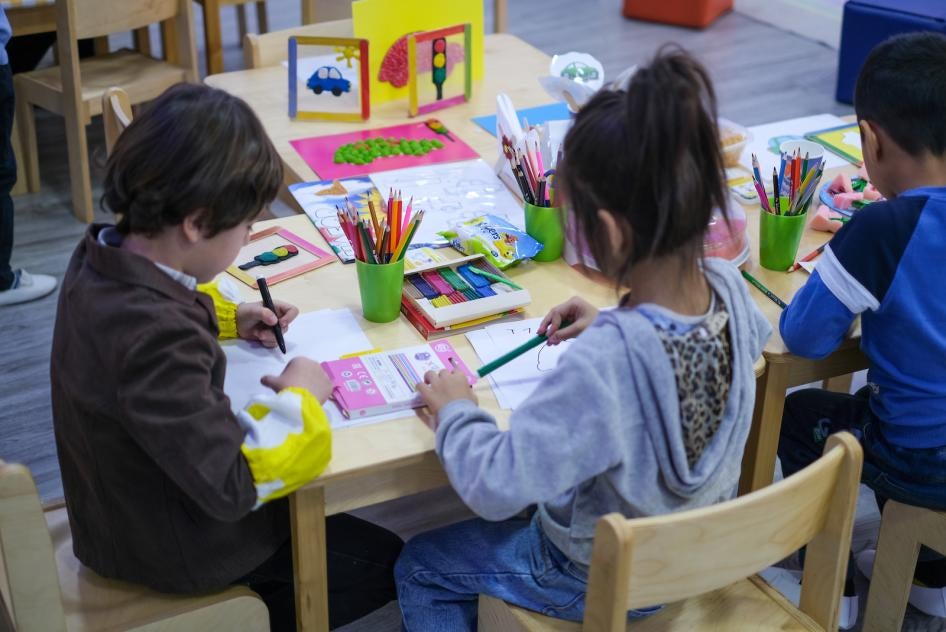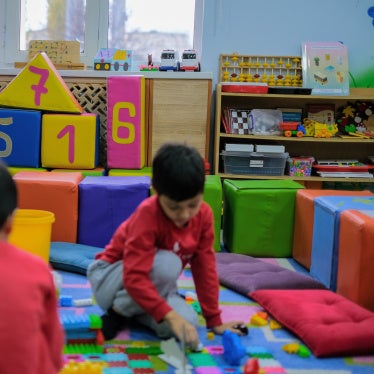Today, January 24, has been declared by the United Nations as the International Day of Education. It is a time to reflect on what more can be done to ensure that everyone has access to education. It is an issue that the Dominican Republic, newly elected to a three-year term on the UN Human Rights Council, is striving to improve.
We have made some phenomenal progress since the Universal Declaration of Human Rights affirmed in 1948 that education is everyone’s right. In 1950, fewer than half of the world’s children ages 5 to 14 were in school. Today, around 90 percent of children enroll in primary school.
But the picture is bleaker before and beyond primary education. Around a third of the world’s children don’t make it to secondary school, and more than half don’t complete it. Nearly half of preschool-age children worldwide are not enrolled in a pre-primary program. Meanwhile in Latin America, Cuba tops the scoreboard with 99 percent enrollment in early childhood education, and Peru boasts the highest secondary school completion rate at 89 percent.
For many, the cost is what prevents parents from enrolling their children in pre-primary and secondary education. Human Rights Watch has interviewed children and parents across Africa, Asia, and the Middle East who said their inability to pay tuition or other school fees kept children from school.
International human rights law enshrines the right to free primary education—the stronger focus on primary education being a legacy of the era when various treaties were drafted, between the 1960s and 80s. But decades of research—and everyday experiences—demonstrate that primary education alone is insufficient to prepare children to thrive.
Updating international law to reflect today’s realities, by way of a treaty that would explicitly guarantee all children free education from pre-primary through secondary school, would accelerate global progress and focus world attention on removing one the biggest barriers to education. Backing from all Latin American countries for such a treaty could be decisive.
Brain development is at its fastest in children’s early years, so it’s a critical opportunity to make a difference. Quality pre-primary education has long-term benefits for children’s cognitive and social development, and health. Preschool aids children’s successful transition to primary school and later educational attainment. It ensures children with disabilities are included and supported in classrooms from the early years, promotes their enrollment, and reduces discriminatory attitudes against them. Pre-primary education reduces inequalities among children from different income backgrounds.
Secondary education, including technical and vocational training, empowers youth with a wider breadth of subject knowledge and skills that are essential to their futures, including a future with viable employment options and preparation for adult life. Children with quality secondary education are more likely to find work as adults, earn more, and escape or avoid poverty. They are more likely to adopt healthier diets, seek medical care, have better mental health, and are less likely to have unintended pregnancies. Secondary education boosts political participation, reduces marginalization, and enables children to use modern technologies. Ensuring children are enrolled and stay in secondary school helps prevent child labor, child marriage, and recruitment by armed groups.
Failing to guarantee free pre-primary and secondary education disproportionately harms girls and women. Many parents with limited resources face social pressure to prioritize their boys over their girls, so secondary education fees in particular keep girls from school. Excluding children from preschool hinders parents—overwhelmingly mothers—from engaging in paid employment or otherwise participating in public life.
Expanding free public pre-primary and secondary education comes with significant costs to governments, but education investments provide enormous societal dividends and contribute to economic growth, thus paying for themselves many times over. Several low- and lower-middle economy countries have recently increased free or compulsory pre-primary education, including Comoros, Lebanon, Madagascar, Mongolia, Nepal, Sierra Leone, Tajikistan, and Uzbekistan.
Even so, some countries will need international assistance. The UN estimates that the funding gap for free education from pre-primary through secondary could be filled if 40 higher-income countries met existing commitments to dedicate at least 0.7 percent of gross national income to oversees assistance, and allocated 10 percent of that support to education.
Last year some progress was made. A group of 73 countries joined a statement led by Luxembourg and the Dominican Republic at the UN’s Human Rights Council, expressing support to strengthen the right to education to include an explicit right to at least one year of free pre-primary education and full free secondary.
As a next step, all Latin American states should support a new human rights treaty to explicitly recognize every child’s right to early childhood education, including at least one year of free pre-primary education, and to strengthen the right to free secondary education. It is an ambitious goal. However, with its new role at the UN’s Human Rights Council, the Dominican Republic is well positioned to lead this advance in children’s rights.









